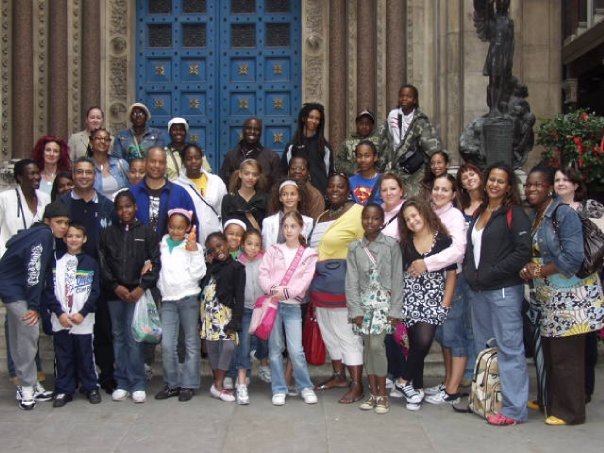Walks, Talks & Films on the African History of London
Top 10 Best Guided Walks in London Conde Nast Traveller Best 15 Walking Tours As seen on BBC2's Great British Story
Black History Walks offer guided Walking Tours London to include the African history of London. The walks take place in 10 different areas from February to November and last about two hours. Private walks available on request, at times to suit your School, University, Birthday or Staff group. Discover 2000 years of London's Black History! Featured in USA Today, the Sunday Express , the Londonist , TimeOut London, Lerasse travels , Cuisine Noir and Channel 4 news. Selected Top 15 Black History Youtube channels by blog.feedspot.com , BHW is sponsored by Eye London Opticians
View our superb, monthly African Odysseys films and our walks and talks HERE
To get advance notice of all coming events join our free mailing list HERE
- Please note physical events will resume only when it is safe to do so as government advice is contradictory when it comes to people of African descent
- HAPI Premiere (online) of new film on Ancient Africa and economics Friday 28th August details HERE
- Image of the Black in the National Gallery (multiple online dates) HERE
- Titian: Sex, Race and Murder August 16th HERE
- Race Riots and the Black British Intelligentsia 25th August HERE
- Caribbean (In)visibility on British TV 26th August HERE
- Intergenerational Trauma in the Age of Coronavirus. Haiti/New Orleans 18th August HERE
- Stan Lee and Marvel comics Black History 4th September HERE
- African Animations, ancient to modern 11th September HERE
- Hip Hop to Opera via Negro Spirituals 15th September HERE
- Planet of the Apes movie Breakdown 18th and 25th September HERE
Quotes from previous walkers
'A brisk, informative stroll through the heart of the British Empire. Our cheerful and intellectually generous tour guide, led us through narrow alleyways and past Roman ruins, within halls constructed by powerful guilds; in the process, he revealed to us both the many layers of British history and the often unacknowledged cultural multiplicity at its core. The tour was exciting, informative and allowed everyone across age, interest, and temperament to participate and learn. It was a wonderful experience and I would recommend it for all.' Professor Caroline Brown, University of Montreal, Canada.
'A truly inspiring day, filled with information I may have NEVER been aware of, if it was not for attending this walk. The friendly intellectually amazing tour guide relayed facts that I would have had to research for months to be aware of. I would URGE any and everyone, of all ages to attend - a great, fun, educational day out.' Isschara Maxine, London
I just wanted to let you know that the students REALLY enjoyed the tour yesterday. I polled them in class and everyone overwhelmingly had positive things to say. They particularly enjoyed how you incorporated modern day information into the tour. They said it was extremely informative and made it seem all really relevant. And today it was great listening to them as they walked around central London, noticing some of the things you'd pointed out. So, your work was very well received. Well done and thank you! Lori Tharps, Assistant Professor, Dept. of Journalism, Temple University, USA 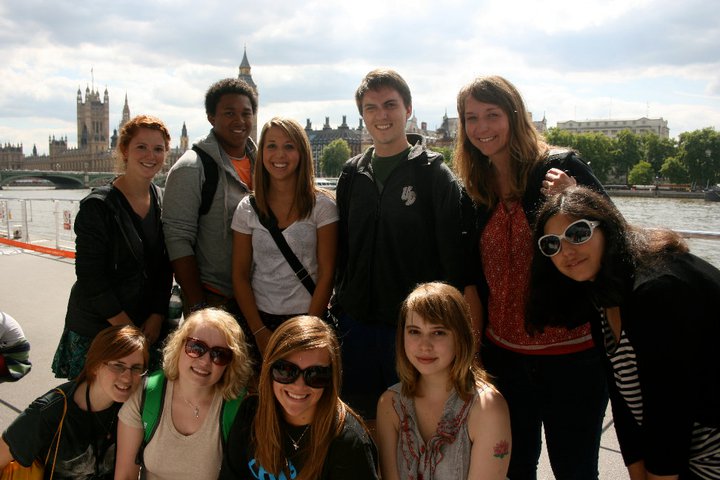
You may hear this often, but many of my students named your tour as the best element of the trip last time. Nancy Comerau, Assistant Professor of English, Ohio Wesleyan University, USA
Absolutely brilliant lecture and walk yesterday. Students were really energized. Thanks so much. Bill Mullen, Professor of English and American Studies, Purdue University, USA
"Our guide's encyclopedic knowledge of the area, and his passion for black history, made for a rich and detailed learning experience. He was friendly and engaging, frequently involving the students in dialogue and relating his points to places and subjects that are familiar to them. The students were fascinated throughout and learned a great deal. We recommend this tour most highly!" Rebecca Whisnant, Associate Professor of Philosophy, Director of Women's and Gender Studies, University of Dayton, USA
I would really like to book two black history walk dates around St Pauls and the Barbican for our two year 6 classes. We have done them for the last two years and the children always learn such a lot and talk about it for a long time afterwards.Helen Davies, Head of Year 6, John Scurr School, Tower Hamlets
hank you for organizing a wonderful walking tour for my students. You are incredibly knowledgeable, and it was such a joy to hear your take on things. The students loved this field trip. You did an excellent job relating the history, culture, and social contributions of Black and Afro-Caribbean people in a fun and lively way while still emphasizing the seriousness and importance of this often overlooked aspect of British life. I could not have asked for a better supplement to my Sociology course on race, identity, and culture. I really appreciate you helping make the class so special and look forward to arranging another. William Force, Assistant Professor of Sociology, Western New England University
What an amazing tour! It completely moved me to rethink the intricate web of social, economic and political relations that characterize British imperial rule and racial politics. Engaging, moving, will keep you asking more questions. The best way to get to know London. Alai Reyes-Santos, Professor of Ethnic Studies, University of Oregon
-
Subscribe to our mail list for advance notice of all walks, talks and films HERE
-
We also offer Films and Talks
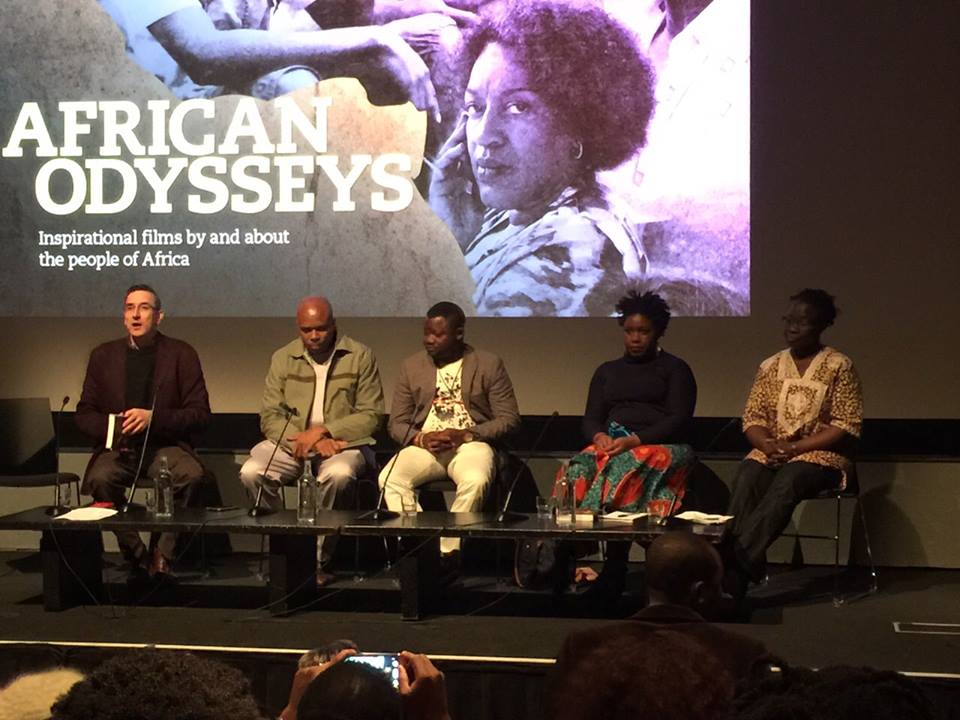 on a variety of African-centred topics all year long, to complement our Walking Tours London.
on a variety of African-centred topics all year long, to complement our Walking Tours London. -
The talks are interactive, multi-media presentations designed to suit, schools, universities, staff associations, community groups and public events.
-
We arrange monthly public film screenings African Odysseys at the BFI (British Film Institute) Southbank and at Phoenix cinema.
-
We provide teacher and parent training, inset days and run long and short term interventions in primary/secondary schools, with classes or individual pupils. We work with 'at-risk' youth and run workshops in Young Offenders Institutes, Secure Units and with probationers.
" Is there really any Black History in London ? The Windrush only got here in 1948!" One of the most interesting things about the African influence in Britain is that it is all around us...Click on Read More below to continue.
in the very streets, institutions and architecture. What is even more interesting is that most of us have been so mis-educated formally and informally, that we are blind to it even when the physical evidence stares us in the face.
One of our most popular walk is in the 'Square Mile' or the City of London. This is the oldest part of London and has a distinct political identity as it has its own Lord Mayor. It is also the centre of wealth creation for Britain but much of that wealth has been, and still is, created by Africa.
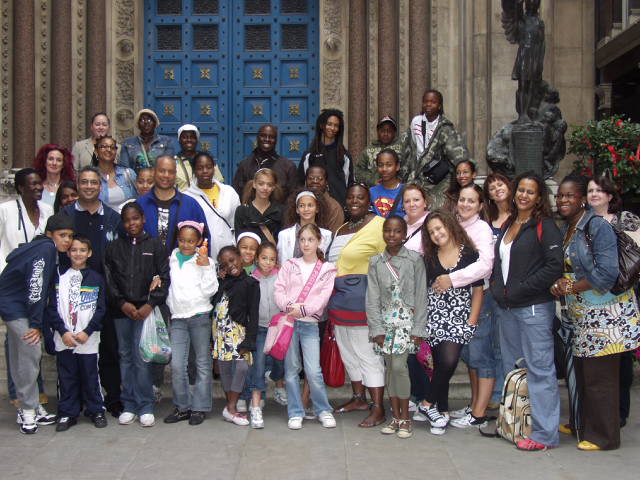
Above : The West Yorkshire PBCA came all the way from Huddersfield to do the St Pauls Walk. Courtesy Milton Brown.
The unique St Pauls/Bank walk takes inside streets and back alleys that one would never see from the main road. As we meander along the quiet footpaths bit by bit, we uncover the hidden connections between Africa, the Diaspora and the infrastructure of ancient and modern London. We show how certain fraternal societies benefited from African wealth and invested that wealth in academic institutions and charities. We reveal how African names came to be given to streets and areas.
We look at the visual imagery of London and point out the obvious African influences, which are so often ignored despite being quite blatant. There is even African architecture on display in certain areas although it is not recognised as such due to the euro-centric bias of the education system.
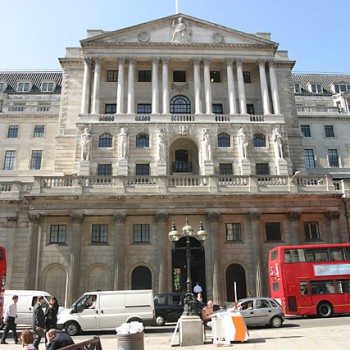
The walk illustrates the 2000 year presence of Africans in London and the British reaction to immigration in 1596 when the Queen stated there were too many black people in Britain and they should be sent home ! Banks and buildings, which were built directly and indirectly with African labour, are pointed out. We discuss the Black British soldiers… of 1776 and 1794 and make comparisons to the Black Spitfire and Bomber pilots of World War 2.
We point out the statues of people like William Beckford (twice Lord Mayor of the City of London) and Sir Martin Frobisher who are both regarded as British heroes but were both involved in kidnapping, forced labour and torture.
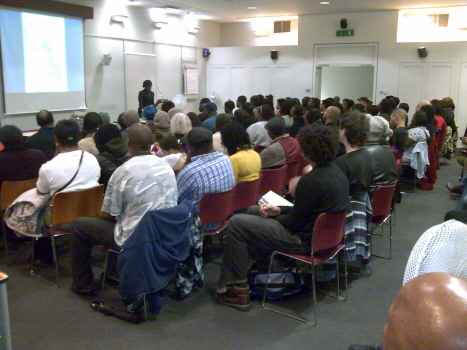
Left: Lecture on Hitlers Black Victims Imperial War Museum February 2009. Right, Bank of England
We discover the connections between big business and the church by way of the banks and the “old boy network”. Another location points out the role that minority groups have played in regenerating inner London areas only to be priced out of them. To book a walk choose from one of these five .
Thess, Wolverhampton Caribbean Group
Anders Neergaard, Associate Professor and Director of the Institute for Research on Migration, Ethnicity and Society, Linköping University, Sweden

